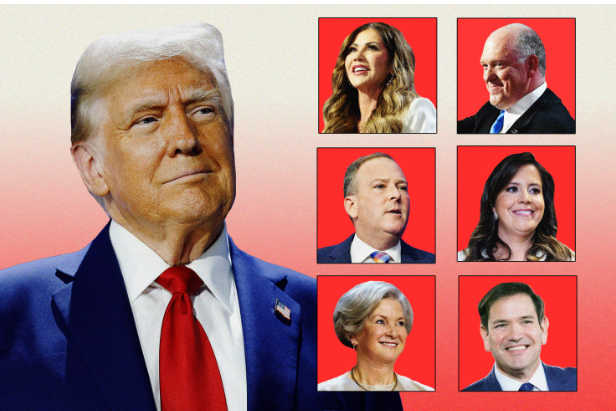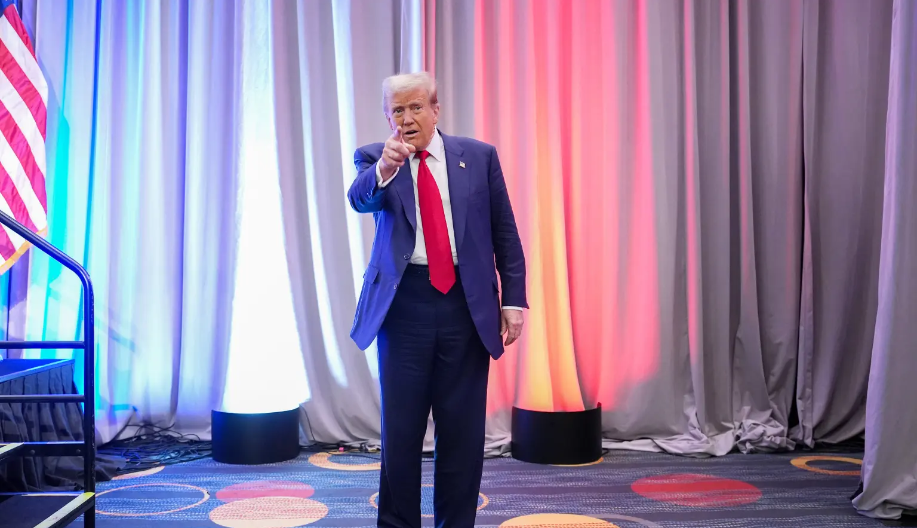By Jemimah Wellington, JKNewsMedia Reporter
PRESIDENT-ELECT Donald Trump’s administration is beginning to take shape, as he announced several strategic cabinet nominations designed to drive his “America First” policy agenda.
Trump selected high-profile figures and close allies to lead core initiatives focused on border security, economic efficiency, and foreign policy as he prepares to take office on January 20, 2025.
Among his choices, Trump appointed Elon Musk, the billionaire CEO of Tesla and SpaceX, to co-lead the new Department of Government Efficiency alongside former Republican candidate Vivek Ramaswamy.
This department, established specifically for Trump’s administration, aims to dismantle bureaucratic hurdles, reduce federal regulations, and cut wasteful government expenditures.
By setting a deadline of July 4, 2026, for reform efforts, Trump’s goal is to overhaul federal operations with Musk’s business acumen.
Musk will retain his private-sector roles, allowing him to continue steering his companies while fulfilling his duties in Washington.
Susie Wiles, who was instrumental in Trump’s 2024 campaign, has been named White House Chief of Staff.

Wiles, a seasoned Republican strategist, is tasked with coordinating Trump’s policy implementation and advising on political affairs.
Trump praised her unwavering support, acknowledging her strategic prowess that contributed to his electoral success.
Known for her efficient and results-oriented management style, Wiles’ role will be crucial in unifying Trump’s administrative objectives and securing Republican support in Congress.
On immigration, Trump selected Tom Homan as the Border Czar, assigning him the mission to enforce strict border controls.
Homan, who previously served as acting director of U.S. Immigration and Customs Enforcement (ICE) under Trump’s first term, will oversee one of the administration’s largest deportation operations in history.
Trump declared his commitment to preventing illegal immigration, making Homan’s experience in border security a key asset for executing this high-stakes mandate.
National security was also a priority in Trump’s announcements, with Florida Congressman Mike Waltz appointed as National Security Advisor.
Waltz, an Army Green Beret veteran, has been an outspoken critic of U.S. relations with China, advocating for a more defensive stance.
His experience in Afghanistan and extensive knowledge of global security challenges position him to lead Trump’s foreign policy, particularly in countering perceived threats from China.
For the role of Environmental Protection Agency (EPA) Administrator, Trump tapped former New York Congressman Lee Zeldin, known for his skepticism of international environmental agreements.
Zeldin has promised to prioritize energy independence, reduce environmental regulations, and support U.S. industries by scaling back restrictions on automotive and energy sectors.
These moves stresses Trump’s commitment to minimizing federal interference in industry, aligning with his first-term energy policies.
In foreign relations, Trump named New York Congresswoman Elise Stefanik as the U.S. Ambassador to the United Nations.
Stefanik, a strong supporter of Trump’s policies and an advocate for Israel, is expected to spearhead reforms within the U.N. that align with America’s interests.
Stefanik’s appointment comes as Trump reiterates his intent to bring the war in Ukraine to a close through diplomatic efforts.
Lastly, Trump re-appointed Stephen Miller as Deputy Chief of Staff for Policy.
Miller, a prominent figure in Trump’s first administration, is known for his hardline stance on immigration.
His role will involve advancing Trump’s policies on border control and sovereignty, further solidifying Trump’s vision for the United States’ domestic and foreign stance.
Observers notes that with Trump’s cabinet shape up, the appointments signal a return to the core principles that defined his first presidency.





